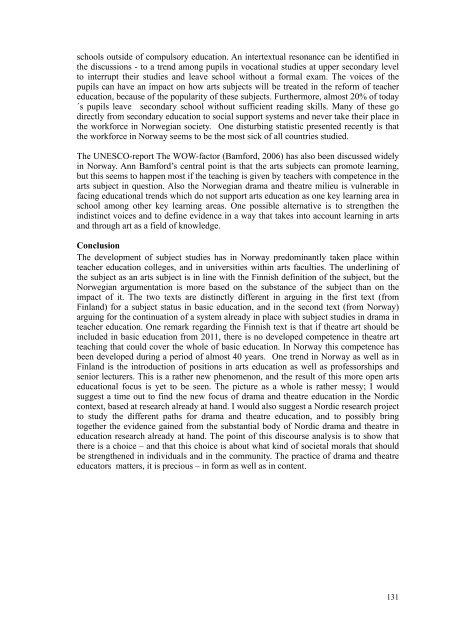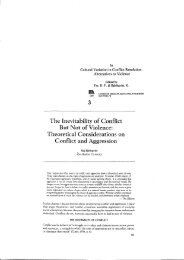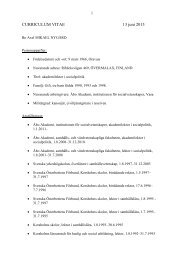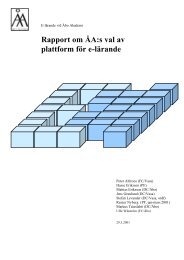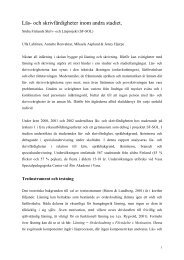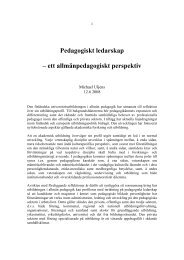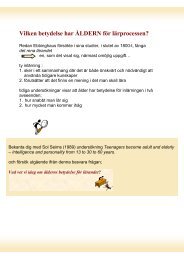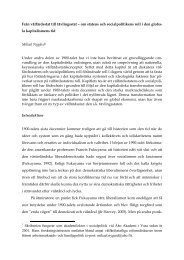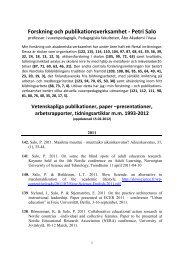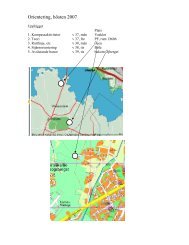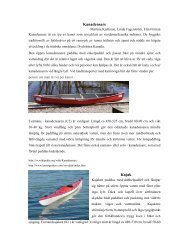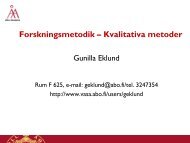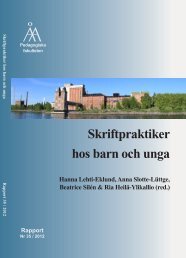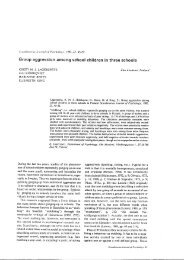Drama Boreale - Åbo Akademi
Drama Boreale - Åbo Akademi
Drama Boreale - Åbo Akademi
Create successful ePaper yourself
Turn your PDF publications into a flip-book with our unique Google optimized e-Paper software.
schools outside of compulsory education. An intertextual resonance can be identified in<br />
the discussions - to a trend among pupils in vocational studies at upper secondary level<br />
to interrupt their studies and leave school without a formal exam. The voices of the<br />
pupils can have an impact on how arts subjects will be treated in the reform of teacher<br />
education, because of the popularity of these subjects. Furthermore, almost 20% of today<br />
´s pupils leave secondary school without sufficient reading skills. Many of these go<br />
directly from secondary education to social support systems and never take their place in<br />
the workforce in Norwegian society. One disturbing statistic presented recently is that<br />
the workforce in Norway seems to be the most sick of all countries studied.<br />
The UNESCO-report The WOW-factor (Bamford, 2006) has also been discussed widely<br />
in Norway. Ann Bamford’s central point is that the arts subjects can promote learning,<br />
but this seems to happen most if the teaching is given by teachers with competence in the<br />
arts subject in question. Also the Norwegian drama and theatre milieu is vulnerable in<br />
facing educational trends which do not support arts education as one key learning area in<br />
school among other key learning areas. One possible alternative is to strengthen the<br />
indistinct voices and to define evidence in a way that takes into account learning in arts<br />
and through art as a field of knowledge.<br />
Conclusion<br />
The development of subject studies has in Norway predominantly taken place within<br />
teacher education colleges, and in universities within arts faculties. The underlining of<br />
the subject as an arts subject is in line with the Finnish definition of the subject, but the<br />
Norwegian argumentation is more based on the substance of the subject than on the<br />
impact of it. The two texts are distinctly different in arguing in the first text (from<br />
Finland) for a subject status in basic education, and in the second text (from Norway)<br />
arguing for the continuation of a system already in place with subject studies in drama in<br />
teacher education. One remark regarding the Finnish text is that if theatre art should be<br />
included in basic education from 2011, there is no developed competence in theatre art<br />
teaching that could cover the whole of basic education. In Norway this competence has<br />
been developed during a period of almost 40 years. One trend in Norway as well as in<br />
Finland is the introduction of positions in arts education as well as professorships and<br />
senior lecturers. This is a rather new phenomenon, and the result of this more open arts<br />
educational focus is yet to be seen. The picture as a whole is rather messy; I would<br />
suggest a time out to find the new focus of drama and theatre education in the Nordic<br />
context, based at research already at hand. I would also suggest a Nordic research project<br />
to study the different paths for drama and theatre education, and to possibly bring<br />
together the evidence gained from the substantial body of Nordic drama and theatre in<br />
education research already at hand. The point of this discourse analysis is to show that<br />
there is a choice – and that this choice is about what kind of societal morals that should<br />
be strengthened in individuals and in the community. The practice of drama and theatre<br />
educators matters, it is precious – in form as well as in content.<br />
131


